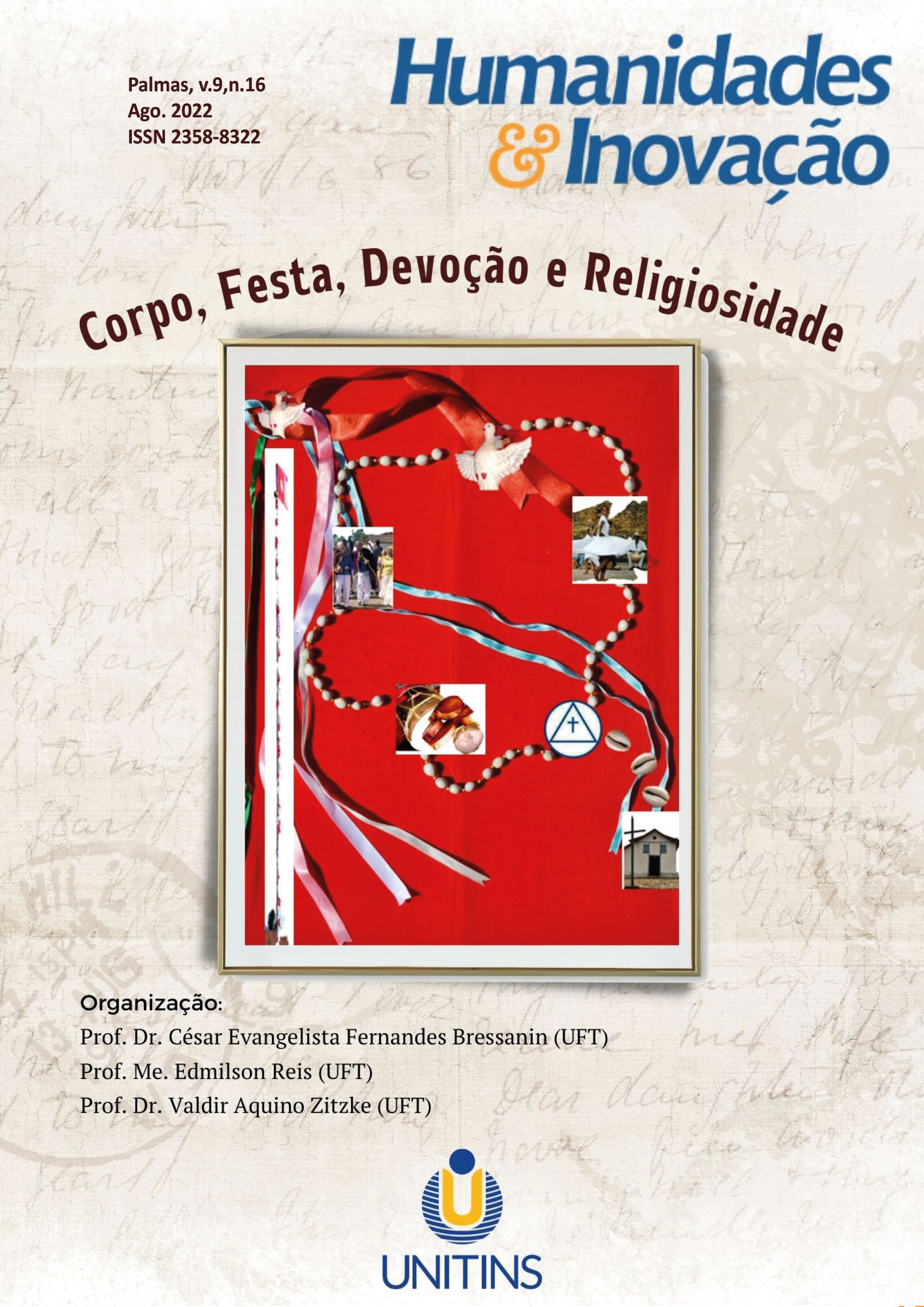A FEBRE EDUCACIONAL SUL COREANA, PASSADO E PRESENTE: O PARADOXO ENTRE A TRADIÇÃO E O DESENVOLVIMENTO
Abstract
References
AUBERT, Jean-Eric; SUH, Joonghae. Assessment and Lessons. In: CHEN, Derek; SUH, Jooghae (ed.). Korea as a knowledge economy. Washington: WBI, KDI, 2007. Diponível em: https://openknowledge.worldbank.org/bitstream/handle/10986/6755/409300PAPER0KR101OFFICIAL0USE0ONLY1.pdf?sequence=1&isAllowed=y. Acesso em: 18 abr. 2021.
CHANG, Yunshik. Growth of Education in Korea 1910-1945. Bulletin of the Population and Development Studies, [S.I.], n.4, 1975. Disponível em: https://s-space.snu.ac.kr/bitstream/10371/90811/1/2.GROWTH_OF_EDUCATION_IN_KOREA_1910-1945%5DYunshik%20Chang.pdf. Acesso em: 13 abr. 2021.
CHEN, Derek; SUH, Jooghae (ed.). Korea as a knowledge economy. Washington: WBI, KDI, 2007. Disponível em: https://openknowledge.worldbank.org/handle/10986/6755. Acesso em: 21 fev. 2021.
CHOI, Hoon; CHOI, Álvaro. When one door closes: the impact of the hagwon curfew on the consumption of private tutoring in Korea. IEB Paper n.2015/32, 2015. Disponível em: https://papers.ssrn.com/sol3/papers.cfm?abstract_id=2689777. Acesso em: 24 abr. 2021.
CHOI, Jaesung. Private tutoring and education inequality. Paper Study University of Pennsylvania, 2012. Disponível em: https://paa2013.princeton.edu/papers/130384. Acesso em: 23 abr. 2021.
HOLTTINEN, Ella. Stuck in Hel Joseon: The millennial generation’s plight in contemporary South Korea. Department of Sociology, Lund University, 2020. Disponível em: https://lup.lub.lu.se/luur/download?func=downloadFile&recordOId=9017250&fileOId=9017260. Acesso em: 01 maio 2021.
HWANG, Yunhan. Why do South Korean students study hard? International Journal of Education Research, Gwangju, v.35, n.9, 2002. Disponível em: https://www.researchgate.net/publication/222707983_Why_do_South_Korean_students_study_hard_Reflections_on_Paik's_study. Acesso em: 24 abr. 2021.
ISOZAKI, Noriyo. Education, development, and politics in South Korea. In: TSUNEKAWA, Keiichi; YASUYUKI, Todo. Emerging States at crossroads. Singapore: Springer, 2018. Disponível em: https://link.springer.com/chapter/10.1007/978-981-13-2859-6_10. Acesso em: 05 out. 2020.
JOURNAL OF THE GROUP OF 77 AT THE UN. South Korea faces crisis after leaving the developing world. Journal of the Group of 77, [S.I], v.10, 1997. Disponível em: https://www.g77.org/nc/journal/sepnov97/05.htm. Acesso em: 13 abr. 2021.
KIM, Anna; RHEE, Byung-Shik. Meeting skills and human resource requirements. In: CHEN, Derek; SUH, Joonghae (ed.). Korea as a knowledge economy. Washington: WBI, KDI, 2007. p.107-133. Disponível em: https://openknowledge.worldbank.org/bitstream/handle/10986/6755/409300PAPER0KR101OFFICIAL0USE0ONLY1.pdf?sequence=1&isAllowed=y. Acesso em: 21 fev. 2021.
KIM, Hee-sam. Competition in Education and Happiness. Statistics Research Institute, 2019. Disponível em: http://kostat.go.kr/sri/srieng/srieng_pbl/4/index.board?bmode=read&bSeq=&aSeq=386963&pageNo=2&rowNum=10&navCount=10&currPg=&searchInfo=&sTarget=title&sTxt=. Acesso em: 24 abr. 2021.
KIM, Hyung-A. The seven-given-up-generation. ANU, Asia-Pacific, 2015. Disponível em: https://asiapacific.anu.edu.au/news-events/all-stories/seven-give-generation. Acesso em: 14 abr. 2021.
KIM, Jin-Sook; BANG, Hyeyoung. Education fever. Pedagogy, culture & society, [S.I.] v.25, n.2, 2016. Disponível em: https://www.tandfonline.com/doi/abs/10.1080/14681366.2016.1252419. Acesso em: 27 abr. 2021.
KIM, Juhu; LEE, Jong-gak; LEE, Soo-kwang. Understanding of education fever in Korea. KEDI Journal of Educational Policy, [S.I.], v.2, n.1, 2005. Disponível em: https://kess.kedi.re.kr/eng/publ/list?itemCode=02&survSeq=&menuSeq=0&division=&word=. Acesso em: 19 abr. 2021.
KIM, Kwang-Suk; KIM Joon-Kyung. Korean economic development. In: CHA, Dong-Se; KIM, Kwang-Suk; PERKINS, Dwight. The Korean Economy 1945-1995. KDI, 1997. Disponível em: https://www.kdi.re.kr/kdi_eng/publications/publication_view.jsp?pub_no=2824. Acesso em: 22 set. 2020.
KIM, Sungwoong; LEE, Ju-Ho. Private tutoring and demand for education in South Korea. Economic Development and Cultural Change, [S.I.], v.58, n.2, 2002. Disponível em: https://www.researchgate.net/publication/46553790_Private_Tutoring_and_Demand_for_Education_in_South_Korea. Acesso em: 25 abr. 2021.
KIM-RENAUD, Young-Key; GRINKER, Richard; LARSEN, Kirk. Korean education. Elliott School of International Affairs, Sigur Center Asia Papers, 2005. Disponível em: https://core.ac.uk/download/pdf/51179647.pdf. Acesso em: 17 abr. 2021.
KOREA. Household Expenditure Trends in 2019. Statistics Korea, 2020. Disponível em: http://kostat.go.kr/portal/eng/pressReleases/6/2/index.board?bmode=read&bSeq=&aSeq=383383&pageNo=1&rowNum=10&navCount=10&currPg=&searchInfo=&sTarget=title&sTxt=. Acesso em: 23 abr. 2021.
LEE, H. K. Globalization and the emerging welfare state. International Journal of Social Welfare, [S.I.], v.8, 1999. Disponível em: https://onlinelibrary.wiley.com/doi/abs/10.1111/1468-2397.00059. Acesso em: 26 out. 2020.
LEE, Jeong-Kyu. Korean higher education under the United States military Government. Radical Pedagogy, 2006. Disponível em: https://radicalpedagogy.icaap.org/content/issue8_1/lee.html. Acesso em: 20 abr. 2020.
LEE, Jin. The policies on supplemental education in Korea. Supplementary education in Asia, [S.I.], n.56, 2011. Disponível em: https://www.iias.asia/sites/default/files/nwl_article/2019-05/IIAS_NL56_1617_0.pdf. Acesso em: 24 abr. 2021.
LEE, Jong-Wha. Economic growth and human development in Korea. HDR-UNPD, Occasional paper, [S.I.], n.24, 1997. Disponível em: http://hdr.undp.org/en/content/economic-growth-and-human-development-republic-korea-1945-1992. Acesso em: 21 ago. 2020.
LIM, Jae-Hoon. Class reproduction and competing ideologies in Korean education. In: KIM-RENAUD, Young-Key; GRINKER, Richard; LARSEN, Kirk. Korean education. Elliott School of International Affairs, Sigur Center Asia Papers, 2005. Disponível em: https://core.ac.uk/download/pdf/51179647.pdf. Acesso em: 17 abr. 2021.
LIM, Phillip. Path dependence in action. KDI, 2000. Disponível em: http://citeseerx.ist.psu.edu/viewdoc/download?doi=10.1.1.524.5634&rep=rep1&type=pdf. Acesso em: 28 jul. 2020.
MILTONS, M.; MICHELON, E. Educação e crescimento econômico na Coreia do Sul. Curitiba, 2008. Disponível em: http://www.economiaetecnologia.ufpr.br/arquivos_servidor/XI_ANPEC-Sul/artigos_pdf/a2/ANPEC-Sul-A2-08-educacao_e_crescimento_e.pdf. Acesso em: 19 out. 2020.
OECD. Education at a glance 2019. Country note indicators, 2020. Disponível em: https://www.oecd.org/education/education-at-a-glance/EAG2019_CN_KOR.pdf. Acesso em: 18 jun. 2020.
OECD. How’s life? 2020. Paris: OECD, 2020. Disponível em: https://www.oecd-ilibrary.org/economics/how-s-life/volume-/issue-_9870c393-en. Acesso em: 24 abr. 2020.
PARK, Yongjin. Modern Korean Economy – 1948-2008. The Academy of Korean Studies, Understanding Korea Series, n.8, 2018. Disponível em: https://www.aks.ac.kr/ikorea/upload/intl/korean/UserFiles/UKS8_Modern_Korean_Economy_eng.pdf. Acesso em: 15 dez. 2020.
SETH, Michael. Education fever. University of Hawaii Press, 2002. Disponível em: https://books.google.com.br/books?hl=pt-BR&lr=&id=65wBEAAAQBAJ&oi=fnd&pg=PP1&dq=korea+education+fever&ots=Lvj1rk1f-V&sig=JmjYp3pJi_DOI-gPy4UtYk_4Kkg#v=onepage&q=korea%20education%20fever&f=false. Acesso em: 16 mar. 2021.
UNPD. Human Development Report 2020. New York, 2020. Disponível em: http://hdr.undp.org/sites/default/files/hdr2020.pdf. Acesso em: 13 abr. 2021.
Copyright Notice
The submission of originals to this periodic implies in transference, by the authors, of the printed and digital copyrights/publishing rights. The copyrights for the published papers belong to the author, and the periodical owns the rights on its first publication. The authors will only be able to use the same results in other publications by a clear indication of this periodical as the one of its original publication. Due to our open access policy, it is allowed the free use of papers in the educational, scientific and non-commercial application, since the source is quoted (please, check the Creative Commons License on the footer area of this page).











